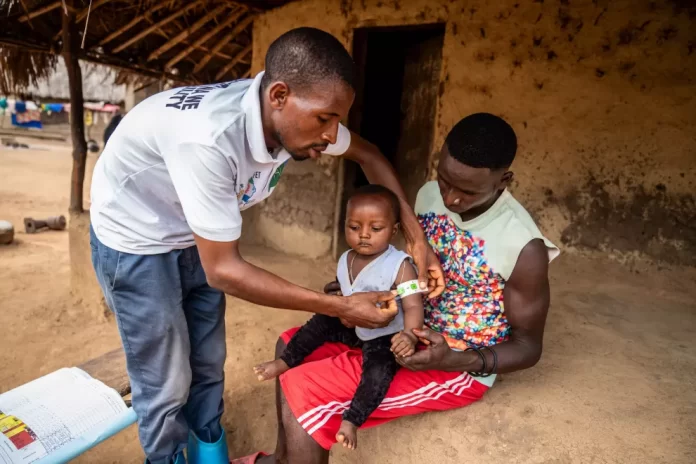In an effort to ensure the achievement of promotion of health services and disease prevention at the community level, health organizations extensively depend on Community Health Worker (CHW) strategies to sensitize communities.
According to the World Health Organization (WHO), Community Health Workers (CHWs) are health care providers who live in the community and serve and receive lower levels of formal education and training than professional health care workers such as nurses and doctors.
CWHs are a human resource group charged with the enormous potential to extend health care services to vulnerable populations, such as communities living in remote areas and historically marginalized people, to meet unmet health needs in a culturally appropriate manner, improve access to services, address inequities in health status, and improve health system performance and efficiency.
Over the years, the impact of communicable and non-communicable diseases on human health has posed a great threat to our existence and work efficiency, affecting us both mentally and physically.
However, due to our vulnerability to disease, the capability is to acquire health programs and actions to prevent and combat the spread of disease.
With the ever-increasing disease burden and emergence of epidemics, community participation or engagement in combating these diseases and promoting the health and stability of individuals is needed.
The Ugandan government, through the Ministry of Finance, has been able to render numerous mass vaccinations and health education a success after the tireless effort of CHWs.
One of the key interventions is the November 4-10, 2022 national door-to-door immunization campaign to administer the new oral polio vaccine to 8.7 million children aged zero to five years old.
The campaign was successfully conducted and achieved administrative coverage above 100%, having vaccinated a total of 11,105,799 children.
This success was attributed to the excellent community mobilization by Local Council Chairpersons (LC1s) and other Village Health Teams (VHTs) and the commitment of the frontline health workers for promotion of positive responses from the communities.
Speaking during the inauguration of the 3rd Health Promotion and Disease Prevention Conference at Speke Resort, Munyonyo, held under the theme Building Resilient Health Systems through Strengthening Community Health Workers, Prime Minister Robinah Nabbanja commended the collective determination to build on the successes of the previous health promotion conferences and confront emerging challenges with innovative approaches.
“The introduction of the Community Health Extension Workers (CHEWs) program is a step in the right direction. It promises to bridge gaps in service delivery and provide more structured support to our CHWs. I encourage the Ministry of Health to expedite the implementation of this program and ensure its nationwide reach,” she said.
Read Also: MoH PS Emphasizes Critical Role of Community Involvement in Health Promotion, Disease Prevention
Dr. Diana Atwine, the Permanent Secretary of the Ministry of Health, also acknowledged the effectiveness of community involvement in the distribution of resources to fight disease spread.
“The success of health promotion and disease prevention at the community level will largely depend on our strategy to sensitize the community. When we integrate, we optimize resources and get the best out of it,” she said.
Community Health Workers play a vital role in numerous health processes, with an extensive outreach narrowing down to the very last household, providing education, processing the right data, and intervening and integrating households in the fight against diseases.
Additionally, CHWs close the gaps existing in human resources at the grass-roots level through using their knowledge for patient education and care, the provision of social support, and acting as a bridge between the community and the healthcare system.
Community members are key stakeholders regarding the work of CHWs; therefore, their views concerning the services offered by the health volunteers are important to inform future decisions.
CHWs commitment as the first contact of the community with the health system is particularly beneficial in rural areas that have limited access to health care and cannot go unnoticed.
From their primary role in reporting to health facilities in their areas to the major health care professionals, the promotion of health and prevention of disease in Uganda is on the road to health excellence.
The government, on the other hand, can support these community health workers through strengthening recruitment, training, and retention strategies; improving motivation; streamlining coordination mechanisms; and developing and strengthening community health policies needed to enhance the performance of CHWs.















